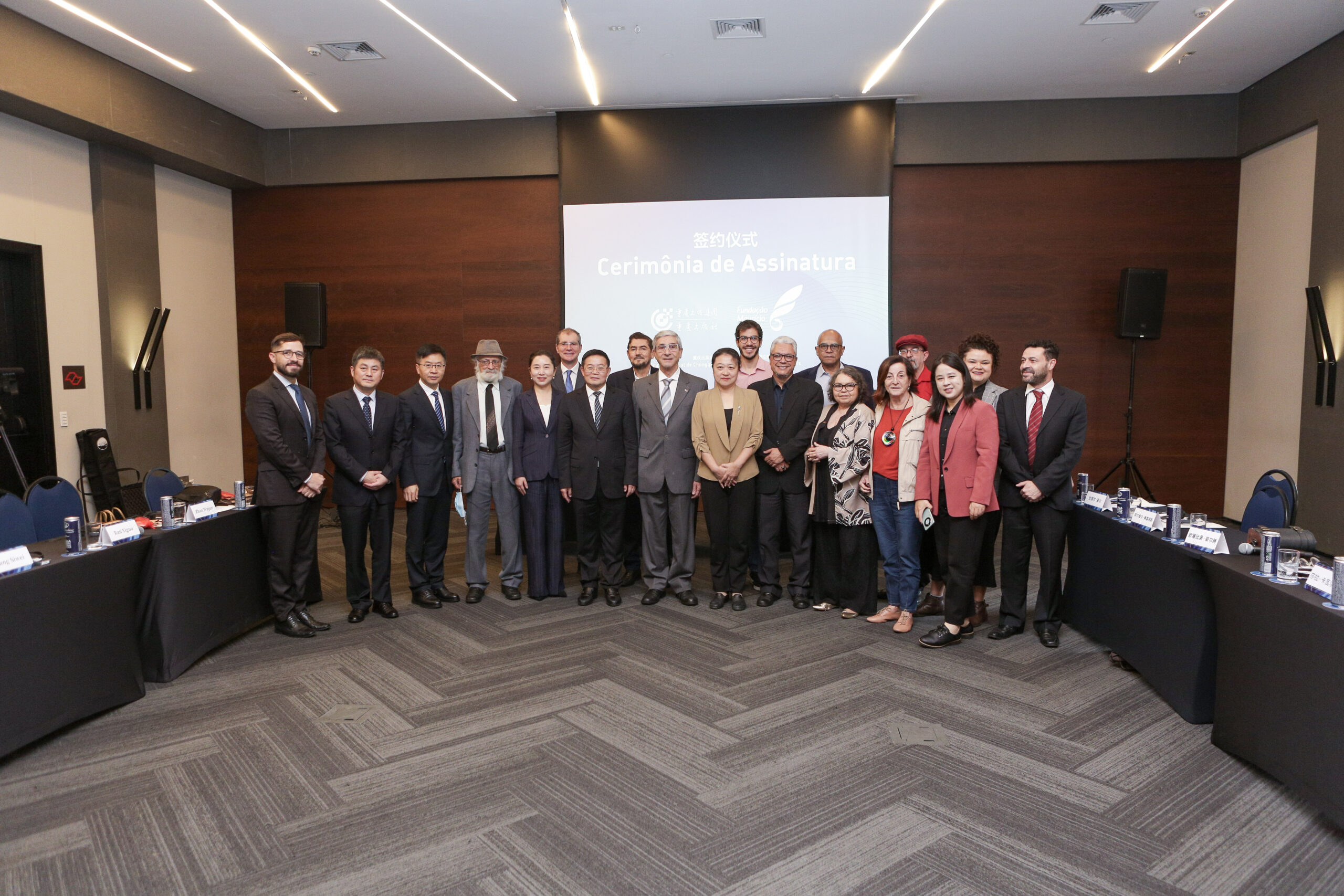
Published 11/08/2024 17:37 | Edited 11/08/2024 17:51
This Friday morning (08/11) the city of São Paulo hosted the “Symposium on the Theory and Practice of Chinese Modernization”. The event was co-organized by the Maurício Grabois Foundation (FMG) in partnership with Chinese entities.
With the presence of representatives from the Communication Department of the Committee of the Communist Party of China – Chongqing and the Academy of Marxism of the Chinese Academy of Social Sciences (CASS), the Symposium delved deeper into China’s development strategy at the beginning of the 21st century. With the presence of around 30 representatives from China and the FMG, the event celebrated the 50th anniversary of the establishment of diplomatic relations between Brazil and China.
In his intervention at the opening of the Symposium, the president of FMG, Walter Sorrentino, outlined the situation in which the event is taking place. “We live in a geopolitical environment marked by turbulence and transformations that reshape the world, with tensions and wars. But new opportunities and challenges also open up,” said Sorrentino.
The meeting also marked the editorial partnership between the PCdoB Foundation and the Chongqing city publishing group.
“In Chongqing, we created an important academy to discuss Chinese modernization. We would like to invite FMG to visit and share this experience with us,” said Chinese representative Guan Hong, Deputy Director of Chongqing Municipal Publicity Department.
On the occasion, the coordinator of the International Observatory of the Maurício Grabois Foundation, Ricardo Alemão Abreu, made an intervention in which he mentioned the document Brazil, South America and the Chinese proposal for the Belt and Road Initiative, distributed to the participants. This document presents FMG’s position in defense of Brazil’s participation in the Belt and Road Initiative. See the FMG website.
“The Seminar was very interesting, with dense interventions, even though they were brief, on the recent process of modernization in China and the prospects for the Centenary of the Founding of the People’s Republic of China in 2049. Brazil and China are strategic partners and are among the leaders of the countries of the Global South”, concluded Alemão.
In addition to German, there was also a presentation given by Yu Haiqing, deputy director of the Academy of Marxism of the Chinese Academy of Social Sciences.
The full article is on the Maurício Grabois Foundation website.
Source: vermelho.org.br

